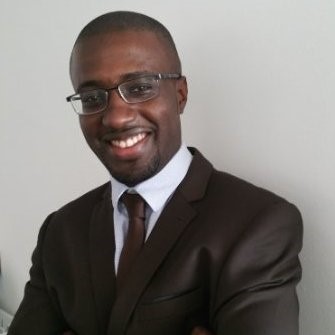
Mayecor Sar (MPP 2011)
Policy Advisor, Presidential Delivery Unit of Senegal
Atlantic Council Millennium Fellow 2016
I work as a policy advisor at the Reforms Department of the Presidential Delivery Unit of Senegal where I am in charge of coordinating and monitoring the implementation of 5 of the country’s 17 most strategic economic, social and public sector reforms. The Presidential Delivery Unit is a central government institution that has been created by the President of Senegal to put public services delivery back at the centre of the government’s national development strategy.
[ALUMNI-INFO TEXT="As part of my responsibilities, I provide technical and strategic advisory to the main reforms delivery stakeholders. In addition, my team advises the President of Senegal through weekly briefing notes discussed at the Council of Ministers, regular policy memos and the periodic convening of a strategic orientation committee.
I find that having the chance to participate to the progress of a developing country like Senegal, where access to economic opportunities and social mobility remain elusive for a large part of the population, is an enthralling personal and professional experience.
Indeed, as a trained policy-maker and social justice advocate, one of the most soul-fulfilling aspects of my job is my involvement in a major public sector reform, whose aim is in part to democratise access to administrative procedures and help develop a territorial approach to public service. I strongly believe that this will make government services more efficient, cost effective and ultimately, benefit the poorest in society.
Of course, like in any other job, there are days when getting out of bed may feel like a chore, but on those occasions, I remember that 600,00 formal jobs, 400,000 apprenticeships, and the success of some poverty reduction initiatives such as the improvement of social security for informal workers depend on our unrelenting commitment. This helps me put my selfish impulses into perspective and gives real meaning to my job."][/ALUMNI-INFO]
[ALUMNI-QUOTES TEXT="When I first began working for the government of Senegal, the biggest challenge I faced was in getting my head around the country’s complex institutional architecture. Understanding the relationship between the various influential stakeholders became vital if I were to quickly settle in my position. At the time, the policy cycle, taught by Professor Michael Howlett, was essential in helping me classify the policy-making process in Senegal into six or seven stages and it allowed me to quickly analyse my new environment and understand the country’s governance framework.
Another useful experience was learning about the institutions, the governmental ecosystem and policies that took Singapore on its amazing journey from third to first world, taught in Professor Lam Chuan Leong’s Public Management in Singapore class. It is an experience that I extensively reflect upon when providing advice to the boss.
In the two years I have spent at the delivery unit, we have achieved many victories like legislations being adopted or Senegal featuring in the top 10 of reformers in the World Bank’s Doing Business ranking, which we are particularly proud of.
However, the proudest moment for me personally came in April 2016 when we helped the Ministry in charge of Civil Service to organise the country’s first ever forum on public administration reform. As part of the technical committee, I identified the administrative procedures that needed to be added or improved and the legislations that needed amending. I also prepared briefings for the thematic working groups and material for the keynote presentation. The forum convened over 600 of the highest ranking government officials, including the President, the Prime Minister and the whole of Cabinet."][/ALUMNI-QUOTES]
This forum was instrumental in setting the agenda for broader public sector reform, for identifying SMART (Specific, Measurable, Achievable, Realistic, Time-bound) targets and for defining the desired impacts on the people of Senegal. It also sent a clear message to the stakeholders that there is institutional support for public service reform, which will facilitate the rest of the implementation stage. The proudest moment yet was when I received a personal letter signed by the Minister in charge of Civil Service thanking me for the part I played in the success of the initiative.
The two years I spent at the Lee Kuan Yew School are, without the shadow of a doubt, the two best years of my life so far and I have so many close friends to show for it. So, the thing I have missed most since graduation is the intellectual stimulation and camaraderie I shared with most of my peers. Much of the learning was done outside of the classroom as you hear about different cultures, share ideas, knowledge and experiences with people from all walks of life. Since graduation, it has been very difficult for many of us to recreate such an environment of intense debating and learning – I miss it very much.
My message to young people pursuing a career in the public sector is this: have that burning desire to serve and a deep rooted sense of self-sacrifice. Your enthusiasm will be stifled by arcane administrative processes and the idealistic impulses that informed your desire to work in the public sector will be severely tested. Yet, it is precisely at these moments that you have to keep plugging away as change, much more than in the private sector, will be incremental and painfully slow.